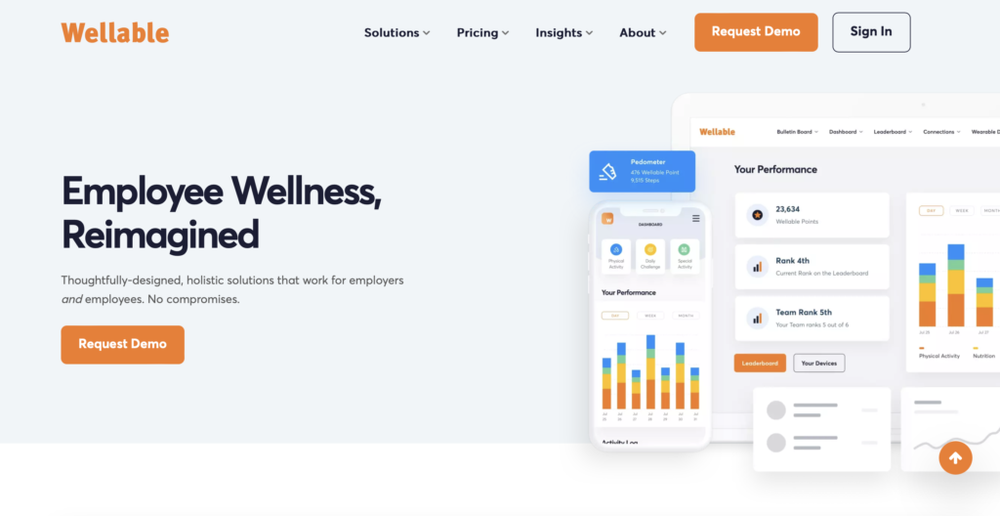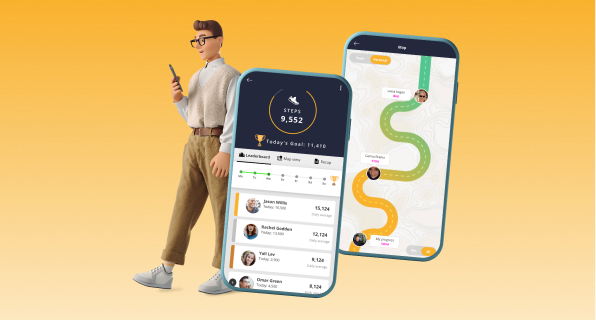In 2024, employees seek workplaces that prioritize flexibility, motivation, and overall wellbeing. Businesses must adapt to attract and retain talent. The wellness industry is growing, offering solutions that support physical and mental health at work. Here are the top 10 innovative companies making a difference in employees’ lives:
1. Reaction Club
Reaction is a single solution for corporate wellness, employee engagement and rewards. It is the world’s fastest growing wellness company, according to data by SEMRUSH analytics.
Self-served platform: Reaction is self-served, so you don’t need to spend time on demo calls and long implementations. This makes it easy to get started and get your employees up and running quickly.
Wide range of options: Reaction’s platform operates like an App Store where Reaction and external developers can build activities. This means that there is a wide range of options available to your employees, and new apps are introduced constantly. This keeps your wellness offering fresh and engaging for your employees.
Unlimited room for innovation: Unlike companies that develop features in-house, Reaction enables unlimited room for innovation. Other developers can build new solutions on the Reaction platform, which means that there is always something new and exciting to offer your employees.
Streamlined with company activities: Reaction’s event feature (scheduling component) allows you to post activities such as Yoga Class or nutrition workshops on the app. This means that HR doesn’t need to post them on a separate platform, and employees can easily see all of the wellness initiatives in one place.
Points and rewards: Reaction solves the motivation problem by letting employees earn points for rewards when participating and supporting colleagues. This leads to 70% active participation over 6 months, which is the highest percentage in the industry.
Pro: Easy to implement and to customize, highly engaging, affordable, constantly improving.
Cons: Like Ikea, you pay less but you’d have to build it and mange it yourself which is not for everyone.
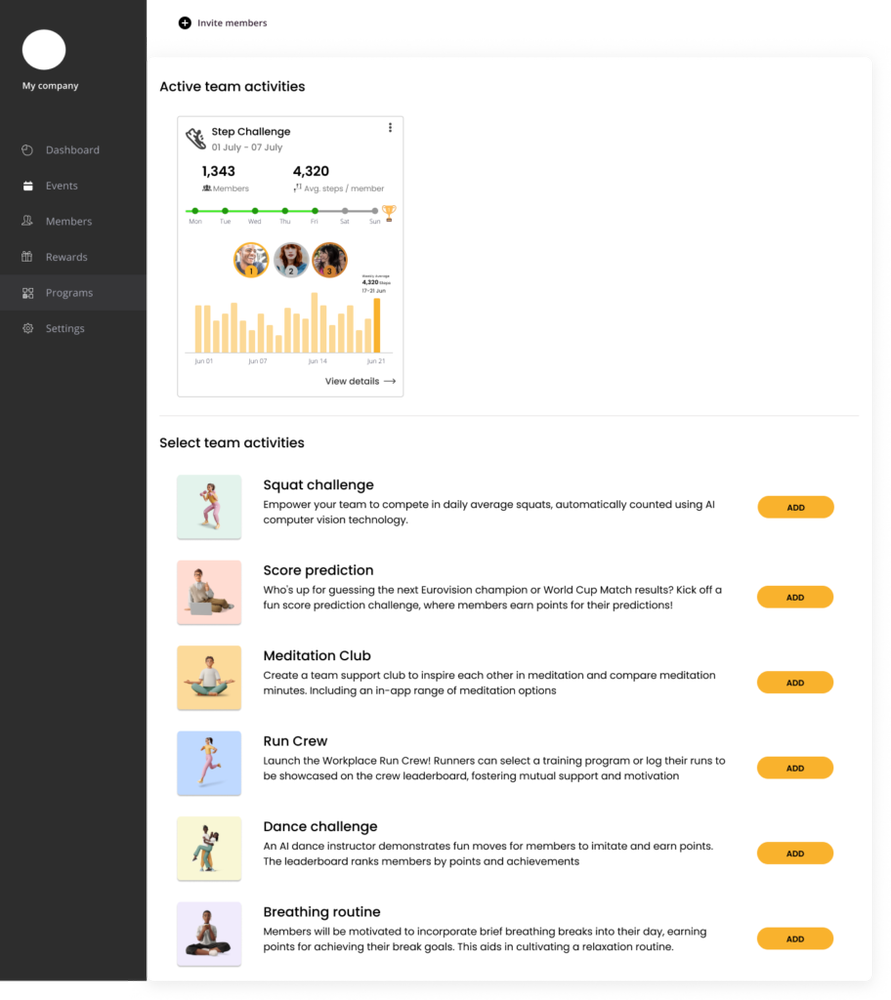
2. GymPass
GymPass is a corporate wellness program that gives employees access to thousands of gyms and fitness centers around the world. Employees can also use GymPass to book classes, such as yoga, Pilates, and spin and purchase app subscription for some wellness apps.
Pros:
- Great perk: GymPass is a great perk for employees who enjoy working out and staying active. It saves them money on gym memberships and class fees.
- Wide range of options: GymPass offers a wide range of gyms, classes, and wellness apps, so employees can find something they like.
- New gyms and apps are constantly being added: GymPass is constantly adding new vendors to its network, so employees always have something new to try.
- Customized sales process: GymPass has a customized sales process that helps companies choose the right plan for their employees.
Cons:
- Not everyone will use it: Not all employees will take advantage of GymPass, so it may not be a cost-effective benefit for all companies.
- Not contributing to company culture: GymPass is not a team-building activity, so it may not be effective in improving company culture.
- Pricey: GymPass can be a pricey benefit, especially for small businesses.
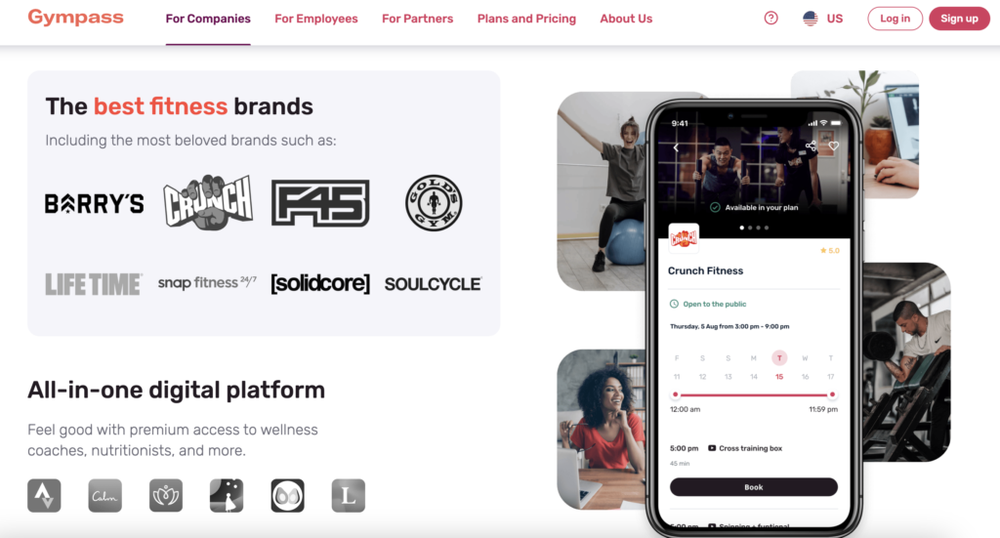
3. Headspace
Headspace is a mindfulness app that helps employees reduce stress, improve focus, and sleep better. Employees can access Headspace’s guided meditations, courses, and sleep sounds on their smartphones or tablets.
Pros:
- Great for mindfulness: Offers a wide range of content guided by world-class experts.
- Cost-effective: Company-wide subscription is annual and relatively cheap compared to other products.
- Valuable content: As part of the subscription, Headspace offers emails with valuable content that some employees would find helpful.
Cons:
- Low usage: Based on online research and feedback from five different companies, the usage rate is very low past the first month. It may remain an offering that almost no one uses.
- Limited impact on workplace connectivity: Like all other benefits, it does not promote connectivity and bonding in the workplace, which are essential components of a good wellness program.
- Narrow scope: It cannot be the only thing you offer in your wellness program as it only covers a small part of what people need in their wellness support.
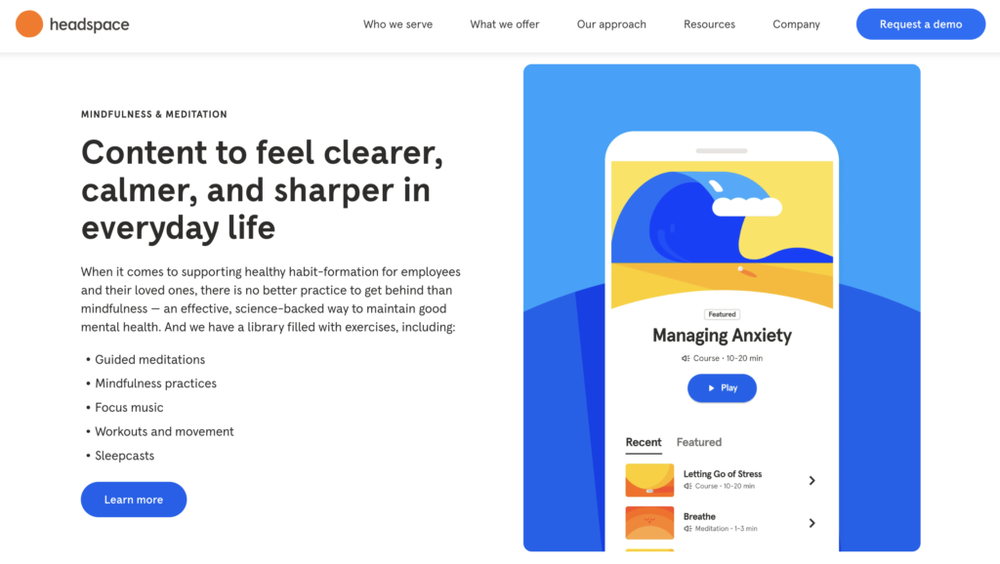
4. Yulife
Yulife is a dynamic insurance company that offers a comprehensive employee wellness engagement and rewards app. It provides employees with a convenient platform to access health benefits, participate in company wellness challenges, and earn rewards for healthy habits.
Pros:
User-friendly interface: YuLife’s app is designed to be intuitive and easy to navigate, making it accessible to employees of all tech levels.
Comprehensive wellness coverage: YuLife goes beyond traditional wellness programs by offering a holistic approach to employee well-being. It encompasses physical, mental, and financial health aspects.
Integrated health insurance perks: YuLife seamlessly integrates with health insurance benefits, providing a centralized hub for managing employee wellness and healthcare needs.
Engaging rewards system: YuLife’s rewards program motivates employees to adopt healthy habits through a gamified system of points, badges, and redeemable rewards.
Cons:
Limited trial options: YuLife does not offer a free trial or demo version, making it difficult for companies to test the app’s functionality before committing to a purchase.
Pricing and commitment: YuLife’s pricing structure may be a barrier for smaller companies, and the long-term commitment could deter some organizations.
Complex decision-making process: The implementation of YuLife may involve multiple decision-makers within an organization, potentially prolonging the buying process.
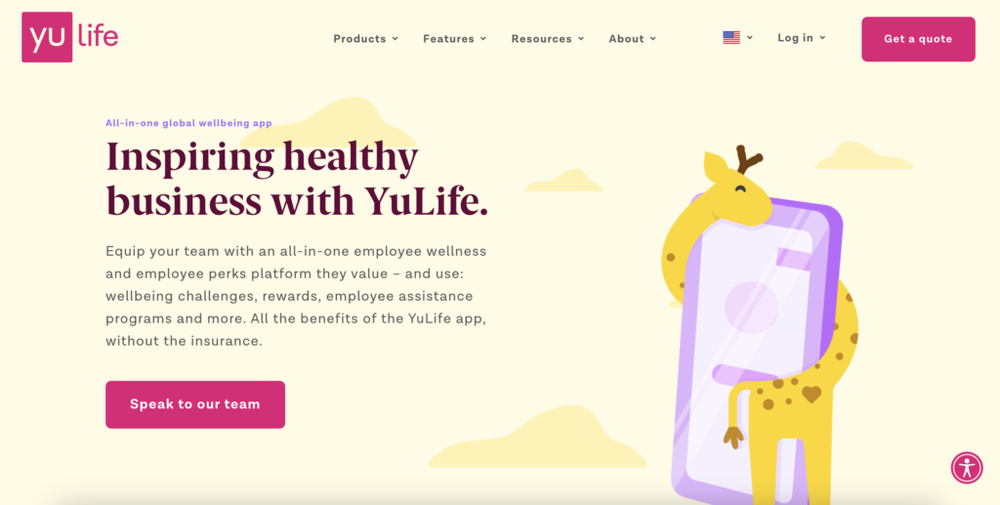
4. Virgin Pulse
Virgin Pulse is a well-established corporate wellness platform that offers a variety of features to help organizations promote employee well-being. It provides a centralized hub for managing wellness initiatives, tracking employee participation, and distributing rewards.
Pros:
Established brand: Virgin Pulse is a recognized name in the corporate wellness industry, providing a sense of credibility and trust for potential clients.
Comprehensive suite of features: Virgin Pulse offers a wide range of features, including wellness challenges, health assessments, and personalized recommendations, catering to diverse employee needs.
Integration with other platforms: Virgin Pulse integrates with various HR and wellness platforms, streamlining data management and enhancing overall functionality.
Cons:
Outdated design: Virgin Pulse’s platform has a dated look and feel, potentially hindering user engagement and adoption among younger employees.
Non-transparent pricing: Virgin Pulse’s pricing structure is not readily available online, suggesting potential for upselling and hidden costs.
Potential for upselling: The lack of transparency in pricing raises concerns about the sales process, suggesting that the company may try to sell additional services or features that may not be necessary.
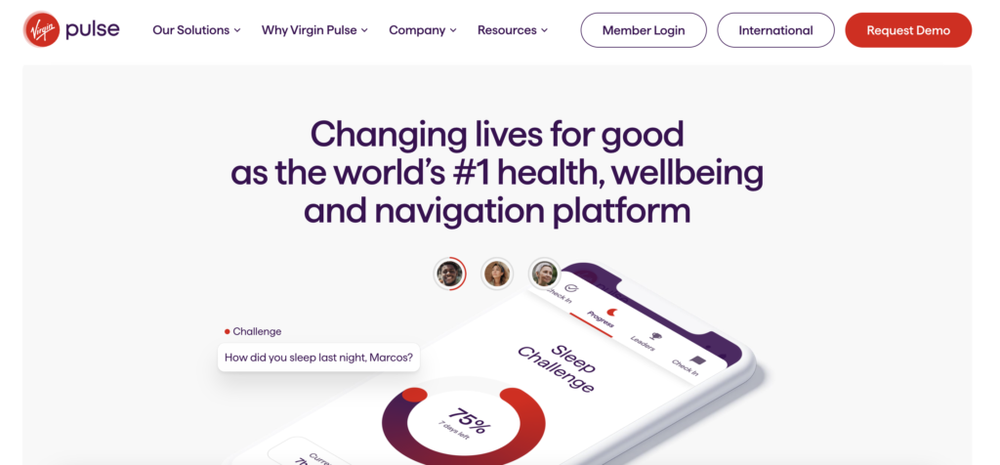
5. Wellable
Wellable is a corporate wellness platform that helps companies track and measure employee health and wellness data. Wellable’s platform also provides employees with personalized wellness recommendations.
Pros:
Combination of app and services: Wellbeats offers a unique combination of a wellness app and wellness services, providing employees with access to both on-demand content and live classes.
On-demand content: Wellbeats offers a library of pre-recorded fitness classes, meditation sessions, and nutrition workshops, allowing employees to access wellness resources at their own convenience.
Easy-to-understand pricing: Wellbeats’ pricing structure is straightforward and transparent, making it easy for companies to budget for the platform.
Desktop version: In addition to the mobile app, Wellbeats offers a desktop version, allowing employees to access wellness resources from their computers.
Cons:
Outdated design and content: Wellbeats’ platform has a dated look and feel, and its content is not as engaging as some of its competitors.
Limited features: Wellbeats’ feature set is relatively limited compared to some other corporate wellness platforms.
Long sales and implementation process: The sales and implementation process for Wellbeats can be lengthy, making it difficult for companies to quickly implement the platform.
No ability to try before you buy: Wellbeats does not offer a free trial or demo version, making it difficult for companies to test the platform before committing to a purchase.
Low participation rate: Several companies have reported low participation rates with Wellbeats, suggesting that the platform may not be as engaging as some of its competitors.
